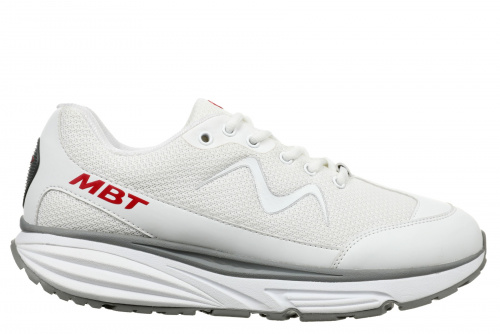Discover Top Shoe Brands and Styles at Pandabuy Shoe Store
Discover Top Shoe Brands and Styles at Pandabuy Shoe Store
Blog Article
Top Fads in Shoes Ecommerce for 2024: What You Need to Know
As we come close to 2024, the landscape of shoe eCommerce is poised for substantial improvement, driven by innovative patterns that assure to reshape customer communications and buying actions. Secret advancements such as AI customization, sustainability initiatives, and the increase of social business are established to redefine how brands get in touch with their target audiences. Additionally, developments like digital try-ons and registration models will additionally improve the purchasing experience. Recognizing these fads is crucial for any market stakeholder seeking to remain affordable in a rapidly developing industry. What ramifications do these shifts hold for the future of footwear retail?
Rise of AI Customization
The rise of AI customization in the footwear eCommerce field is improving the method consumers involve with brand names. As stores utilize progressed algorithms and device knowing, they can now customize the purchasing experience to private preferences, enhancing customer complete satisfaction and loyalty. Via information analysis, AI systems recognize patterns in customer habits, allowing brands to supply tailored product recommendations, promos, and material.
For example, vibrant item displays change in real-time based on customer interaction, ensuring that consumers are provided with styles that reverberate with their tastes. This degree of customization not just enhances the shopping experience yet also drives conversion prices, as consumers are more most likely to purchase products that align with their choices.
Furthermore, AI-driven chatbots give individualized assistance, assisting consumers via the buying procedure and addressing inquiries in a timely manner. This boosted communication cultivates a much deeper link between brand names and consumers. As eCommerce remains to advance, the combination of AI personalization will be crucial in distinguishing effective footwear sellers from their rivals, enabling them to create unique, appealing experiences that reverberate with the modern-day consumer. Accepting this fad is necessary for brand names aiming to grow in the competitive landscape of 2024 and beyond.

Sustainability in Shoes
Stressing sustainability in shoes has actually come to be a vital focus for brands as customers increasingly prioritize environmentally friendly practices. Brand names are currently making use of recycled products, such as plastic and rubber, to produce resilient and trendy footwear.
Furthermore, firms are applying innovative production techniques that reduce carbon footprints. For instance, 3D printing and automated production procedures decrease product waste and energy usage. Many brands are committing to moral labor techniques, guaranteeing reasonable earnings and safe working problems for their employees, which resonates highly with today's socially mindful consumers.
To boost sustainability efforts, brands are likewise concentrating on the idea of circularity. This consists of take-back programs that motivate clients to return old footwear for reconditioning or recycling, thereby expanding product life and lowering land fill waste. As the need for sustainable shoes continues to rise, companies that focus on environmentally friendly techniques will likely acquire a competitive side in the marketplace, cultivating brand name commitment and drawing in brand-new customers devoted to sustainability.
Growth of Social Business
Taking advantage of on the surge of social media sites systems, brands are increasingly integrating social business right into their sales methods, acknowledging its possible to involve customers directly. This trend has transformed how customers find and purchase footwear, with systems like Instagram, TikTok, and Facebook progressing right into essential sales networks.
Brand names are leveraging shoppable posts, online streaming occasions, and influencer partnerships to develop immersive shopping experiences that resonate with their target audience. By using aesthetically attractive content and authentic storytelling, shoe brands can efficiently showcase their products and cultivate a sense of area among customers.
Additionally, making use of user-generated web content has actually become necessary in building depend on and integrity. When they see real individuals utilizing and recommending the products, consumers are more most likely to buy shoes. This organic form of marketing not just improves brand commitment but additionally drives conversions.
As the landscape continues to develop, shoe brands have to stay dexterous, adapting to the most up to date social business features while assessing consumer actions to enhance their techniques. By embracing this growth, brands can record the focus of a more comprehensive target market, eventually driving sales and boosting consumer involvement in the affordable e-commerce market.
Digital Try-Ons and AR
Transforming the on-line buying experience, digital try-ons and augmented truth (AR) innovations are coming to be important devices for shoe brands in 2024. These technologies allow customers to imagine how footwear will her latest blog certainly look and fit before buying, dealing with one of the most considerable pain points in online shopping: uncertainty regarding fit and style.
By leveraging AR, clients can Look At This use their smartphones or tools to see a realistic overlay of footwear on their feet. This immersive experience not just improves engagement but also considerably minimizes return rates, as purchasers are extra confident in their selections. With the expanding elegance of AR technology, footwear brands can create personalized experiences, enabling customers to customize shades, patterns, and styles in real time.
In addition, digital try-ons are being incorporated into social media systems, making it easier for consumers to share their shoes selections with close friends and seek viewpoints. As customers increasingly anticipate tailored and interactive shopping experiences, shoe brands that take on online try-on innovation will certainly get a competitive side. Inevitably, the integration of AR in ecommerce is not simply a fad; it is ending up being an essential element of the customer journey in the footwear market.
Subscription Versions and Providers

These membership services often feature customized tests that assess private design choices, dimensions, and needs, ensuring that consumers obtain alternatives that reverberate this content with their preferences. Furthermore, lots of brand names supply versatile terms, permitting customers to stop briefly or terminate memberships easily, further boosting client satisfaction.
Additionally, registration models can help in reducing the decision-making concern linked with purchasing footwear, as consumers exist with a choice that straightens with their preferences. This method not just cultivates brand commitment but additionally urges repeat acquisitions, as clients are a lot more likely to engage with brand names that supply benefit and tailored solution.
As ecommerce proceeds to develop, the integration of registration services in shoe retail attracts attention as a calculated relocation. It effectively fulfills the demands of modern customers while driving sustained earnings growth for brands in an affordable marketplace.
Verdict
The progressing landscape of shoe eCommerce in 2024 emphasizes the importance of AI customization, sustainability efforts, and social commerce as essential trends forming consumer experiences. As brands increasingly embrace innovative innovations such as virtual try-ons and registration models, the focus on enhancing client involvement ends up being extremely important. These developments not just reflect altering customer preferences however additionally suggest a wider change towards a much more interactive, liable, and customized purchasing environment within the footwear sector.
The rise of AI personalization in the footwear eCommerce field is reshaping the method customers involve with brands. Through information evaluation, AI systems recognize patterns in consumer habits, making it possible for brand names to offer individualized item referrals, promotions, and content.
Highlighting sustainability in shoes has actually come to be a vital focus for brands as customers progressively focus on green techniques. Many brand names are dedicating to honest labor methods, making sure reasonable earnings and risk-free working conditions for their employees, which reverberates highly with today's socially conscious consumers.
As customers increasingly anticipate interactive and personalized purchasing experiences, footwear brands that adopt online try-on modern technology will certainly acquire an affordable edge. pandabuy.
Report this page